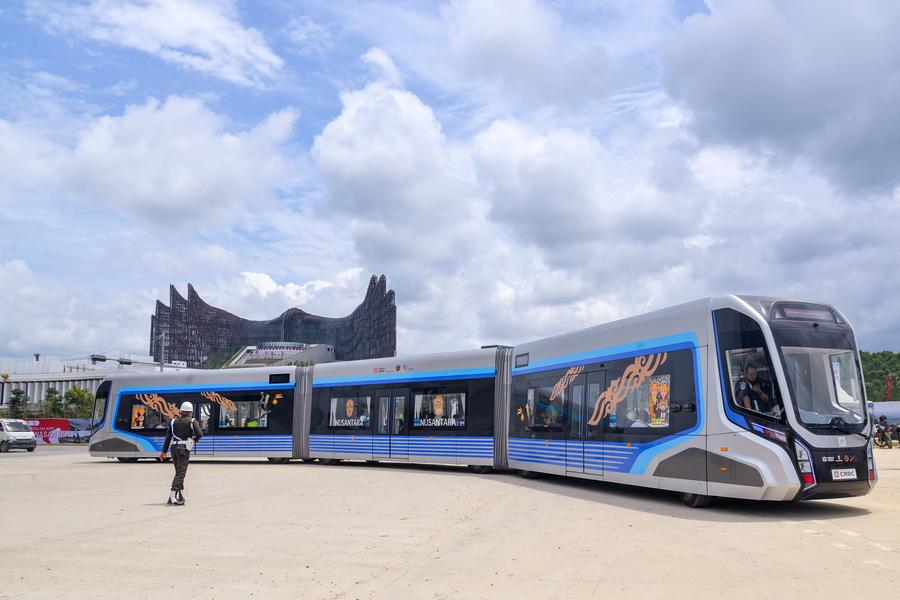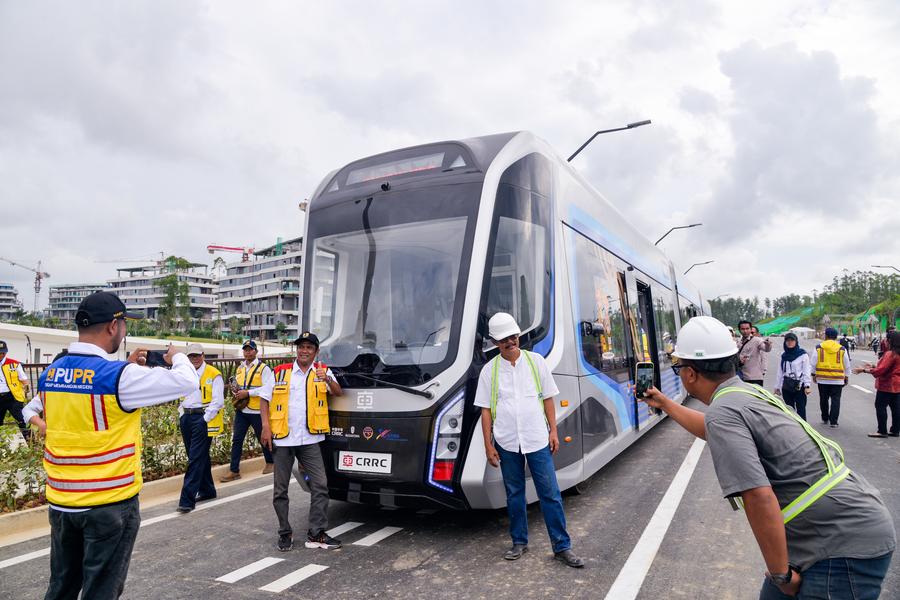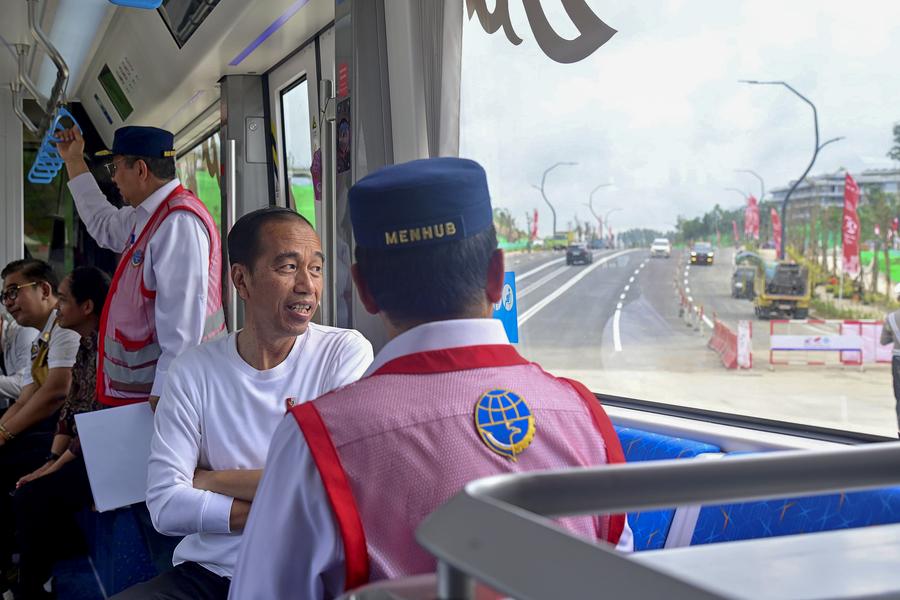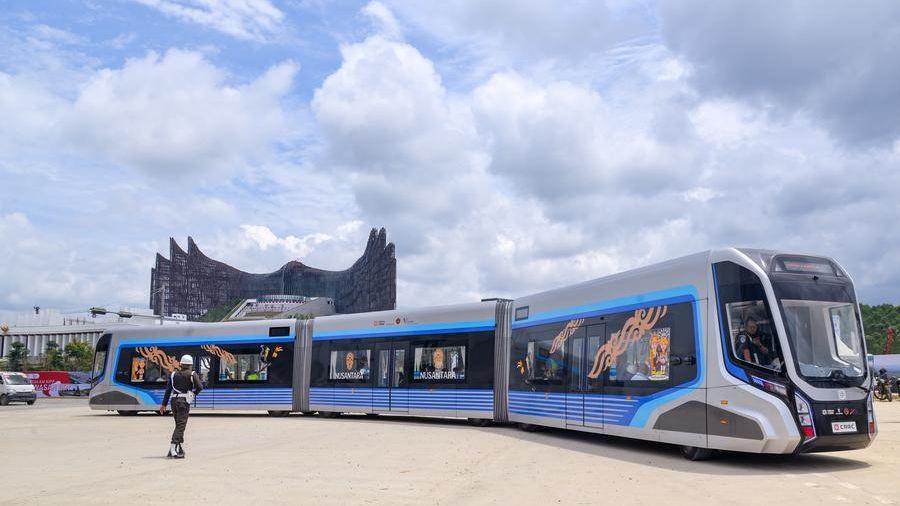This photo taken on Aug. 13, 2024 shows an Autonomous Rail Rapid Transit system in Nusantara, the new capital of Indonesia. (Xinhua/Xu Qin)
The Chinese-developed Autonomous Rail Rapid Transit (ART) system, which is currently in a trial operation in Indonesia's new capital, boasts advantages including lower construction costs, shorter project timelines, and greater flexibility.
Its high capacity and zero carbon emissions are expected to help alleviate future traffic congestion and environmental pressures in Nusantara.
NUSANTARA, Indonesia, Aug. 14 (Xinhua) -- Indonesian President Joko Widodo on Tuesday had a trial ride of the Chinese-developed Autonomous Rail Rapid Transit (ART) system in the new capital of the Southeast Asian country.
The ART system in Nusantara, a collaboration project between China's CRRC Group and NORINCO International, is currently in a trial operation here.
Earlier in the day, in speaking to governors, mayors, and regents at a meeting in Nusantara, Widodo provided a cost comparison between ART and traditional rail systems, noting that the ART system is significantly cheaper.
People pose for photos with an Autonomous Rail Rapid Transit system in Nusantara, the new capital of Indonesia, on Aug. 13, 2024. (Xinhua/Xu Qin)
"For this one, the autonomous rail transit is indeed cheaper because it is without rails, using magnets. Per unit for three carriages, the price is approximately 74 billion rupiah (around 4.7 million U.S. dollars)," he explained, comparing this with the escalating costs for Mass Rapid Transit and Light Rail Transit systems.
He expressed confidence that ART could provide a more sustainable and cost-effective alternative to traditional rail systems in Indonesia, particularly in cities that are becoming increasingly congested.
"The ART system is a representative of China's high-tech achievements and has already been commercially deployed in several Chinese cities and Abu Dhabi in the United Arab Emirates. We remain dedicated to promoting the system in Indonesia and other international markets, contributing to the development of global green transportation," said Wang Xiaobing, vice president of NORINCO International.
"On Saturday this week, the ART system will be showcased at Indonesia's 79th Independence Day celebrations," Wang added.
According to Wang, the ART system integrates advanced technologies such as virtual tracks, BeiDou navigation, autonomous driving, and pure-battery power.
Indonesian President Joko Widodo (2nd R) has a trial ride of an Autonomous Rail Rapid Transit system in Nusantara, the new capital of Indonesia, on Aug. 13, 2024. (Muchlis Jr/Presidential Press Bureau/Handout via Xinhua)
Compared to traditional trams with similar capacity, the ART system boasts advantages including lower construction costs, shorter project timelines, and greater flexibility. Additionally, its high capacity and zero carbon emissions are expected to help alleviate future traffic congestion and environmental pressures in Nusantara.
Over the next two months, NORINCO International and CRRC Group will continue conducting trial operations of the ART system. The Indonesian Ministry of Transportation will carry out comprehensive technical tests and evaluations, and the companies will make necessary optimizations based on the results to ensure the system's smooth operation in Indonesia.
As the general contractor for CRRC's rail transit system and the exclusive partner for ART in Indonesia, NORINCO International is working closely with CRRC Group to ensure the successful deployment of the ART system in Nusantara.







 A single purchase
A single purchase









